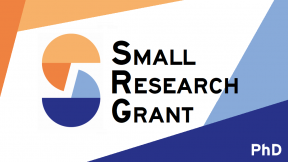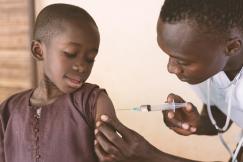Some of the poorest countries in the world are still dominated by agriculture, which tends to be extremely unproductive. In Malawi, for example, 76% of workers labor in the agricultural sector, yet they produce only 23% of the nation's GDP (World Development Indicators). The low agricultural productivity in low-income countries is puzzling but crucial in understanding the enormous income differences across countries (Gollin, Lagakos, and Waugh 2014). A frequent feature of unproductive agricultural sectors is the prevalence of subsistence farming: severe market frictions forcing households to rely on their own production, not the market, for the food they need. This project explores whether the production decisions of subsistence farmers are relevant for understanding the aggregate agricultural productivity level of low-income countries.
The research team propose farmers' demand for nutrition, driven by dietary energy needs, as a force that can explain much of the consumption, production, and selling behaviour of farmers when trade is costly. They explore this mechanism empirically using a government-run survey in Malawi that provides rich household-level consumption and production data. They document that the consumption, production, and selling behaviour of farmers is dependent on the scale of their farms. Motivated by this self-reliance and scale-dependence in the data, the researcher develops a model of farm-operating households facing caloric needs and trading costs. They calibrate the model to match several key moments in Malawian data, test its ability to reproduce the salient patterns in the behaviour of Malawian farmers, and use the model to quantify the importance of farm-level subsistence for keeping the aggregate agricultural productivity low.
The project contributes to the academic literature mainly by documenting several novel facts about scale dependence in the behaviour of subsistence farmers and developing a novel caloric needs model that can explain this behaviour. The model suggests that even a partial improvement in farmers’ ability to interact with the agricultural market can significantly raise the productivity of the agricultural sector, reinforcing the importance of implementing policies that facilitate market access for smallholder farmers. According to the mechanism explored in the project, allowing farmers better access to agricultural markets would permit them to exploit the strengths of the technology and land available to them, and would let the economy produce significantly more agricultural output using the same agricultural technology. This project builds the foundation for a policy-centred follow-up study that will use the caloric needs model to compare several existing and proposed policies targeting smallholder farmers, providing concrete recommendations to policymakers based on the predicted economic and nutritional effects of several alternative policies.
The project finds that both in the model and in the data, the smallest farmers focus their consumption on obtaining calories and specialise their production in unsold staple crops; medium farmers diversify both their diet and their subsistence production; the largest farmers shift consumption to purchased goods by producing and selling marketable farm products. The researcher quantifies the aggregate implications of this farm-level product choice using the model. It suggests that lowering trade frictions enough for the average share of output sold by farmers to reach even 50% would make the country's agricultural sector 42% more productive. Half of this increase is caused by the mechanically reduced erosion of output, and the other half by a better alignment of individual farmers' product choice with their comparative advantage rather than their family's nutritional needs or food preferences.




















































